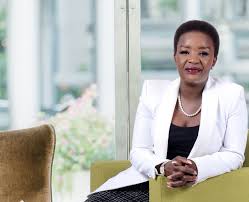Chief Executive Officer of Business Leadership South Africa (BLSA), Busisiwe Mavuso, has said that South Africa’s economic future depends heavily on transformation and continuous reforms. She made this known in her weekly newsletter, where she described the upcoming G20 summit scheduled for November 2025 as a golden opportunity for the country to show the world the progress it has made. According to her, the summit is a platform to boost international confidence in the South African economy and promote foreign investment.
Mrs. Mavuso stated that reforms carried out over the past few years are beginning to yield positive results, and the country must use this momentum to achieve long-term growth. She noted that though South Africa is seeing some signs of recovery—especially in the areas of power supply and infrastructure—more work still needs to be done. She said the combination of efforts from both the government and private sector would be the best way to strengthen investment, drive industrialization, and improve governance across the board.
Electricity problems, like load shedding, and issues with transportation and logistics have long affected South Africa’s economic growth. These challenges have pushed government and industry leaders to act fast. Mrs. Mavuso noted that addressing these areas is key to building a stronger economy. She called for effective partnerships that will help in developing critical infrastructure and supporting reforms in sectors such as transport, mining, energy, and manufacturing.
Another top official, Saki Zamxaka, who is the CEO of the Gauteng Growth and Development Agency, also stressed the need for private sector participation. He said during the recent South Africa–European Union CEO Dialogue in Johannesburg that government alone can not handle the amount of investment needed. He called on investors to help fund roads, housing, power generation projects and other important developments. According to him, public-private partnerships can speed up project delivery and reduce costs.
President Cyril Ramaphosa has also laid out his government’s economic vision for 2025 and beyond. In his State of the Nation Address earlier this year, he highlighted several areas the country aims to lead in, such as renewable energy, digital services, cannabis and hemp production, and tourism. The government is also encouraging green industries and local production to boost employment and reduce poverty.
In line with this, the administration has introduced reforms for state-owned enterprises such as Eskom and Transnet, both of which play important roles in electricity and transport. As part of the Operation Vulindlela initiative, which is being managed by the presidency and the National Treasury, new policies like the rail corridor roadway and the Electricity Regulation Amendment Act have been introduced. These reforms are meant to open the door to private sector players and improve services in key areas, especially energy and logistics.
South Africa’s G20 presidency also carries a strong message about the country’s commitment to global development. The theme of the 2025 G20 is “Solidarity, Equality and Sustainability.” As the first African nation to chair the G20, South Africa aims to use the platform to promote inclusive economic growth and push for climate change actions. There is also focus on breaking trade barriers through the African Continental Free Trade Area (AfCFTA), supporting green manufacturing, and attracting investments into food, energy, and digital technologies.
However, there are still concerns. Analysts like Terrance Booysen from BizNews have warned that corruption, poor leadership, and weak governance in state enterprises could undo the gains already made. He said these issues may scare away investors and reduce trust in South Africa’s ability to deliver on its promises.
Despite this, many business leaders are hopeful. A recent survey by PwC showed that 63 percent of CEOs in sub-Saharan Africa are confident about global economic prospects. Most of them are exploring new areas and changing their business models to stay relevant and competitive.
As the G20 meeting draws closer, all eyes will be on South Africa to see how it manages this opportunity. For Nigeria and other African countries, South Africa’s story provides a useful lesson—that real economic growth goes beyond natural resources. It requires strong leadership, clear policies, solid institutions, and collaboration between public and private sectors. What happens in the next few months may determine if South Africa can truly turn its reform efforts into lasting economic progress.
